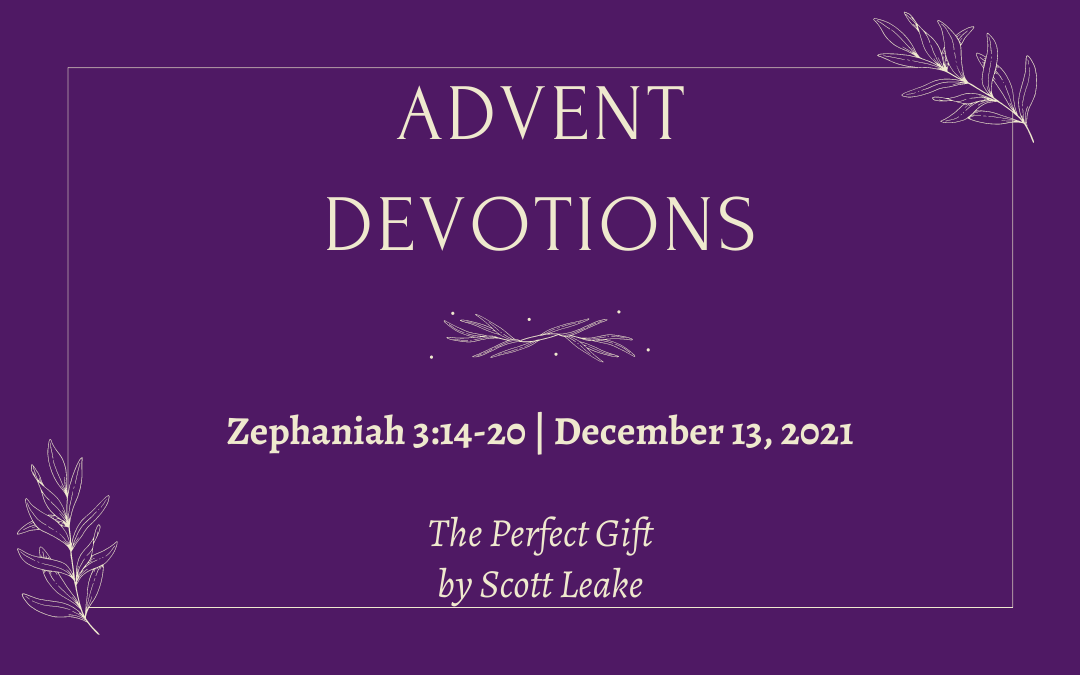2021 Advent Devotions
Zephaniah 3:14-20 | December 13, 2021
The Perfect Gift
by Scott Leake
For years my Sunday School class, the Life Class, has reveled in a Christmas party tradition. After the covered dish dinner, the white elephant or Yankee swap begins. We each in turn open a wrapped item of our choice from under the tree, not knowing who brought it much less what’s inside. Depending on the luck of the draw, each party goer may swap his “gift” for one already opened or hold on to what he has in hopes no one takes it away. What does that have to do with Zephaniah, you ask? Read on, my friend.
If the best gifts come in small packages, the so-called Minor Prophets must be a rich treasure trove. We call them “minor” because they are brief, not because their messages are insignificant. (Zephaniah barely runs three pages in my Bible.)
Skimming through the book can be confusing trying to figure out who is saying what. It’s a dialogue bouncing back and forth between the prophet and the Lord. A few sentences from one then a few from the other is the pattern. Just imagine, we are listening in on a conversation between God and one of His chosen prophets about 2,600 years ago!
God begins by vowing to wipe out everything on earth. The prophet interrupts, telling his contemporaries to shut up and listen. God resumes with a less sweeping intention—to wipe out the ruling class, the merchants, and idolaters. Having heard the vow by God, Zephaniah describes to his listeners what the land will look like on the “Day of the Lord.” It’s not a pretty picture. Yahweh then interjects briefly to say this distress will come to all nations, but Zephaniah responds that the “humble” may escape. Back and forth the dialogue goes until we reach today’s text. Just after God’s judgment are God’s words of love, mercy, and forgiveness. Zephaniah breaks out into an exhortation for the people to shout aloud, be glad, rejoice. God promises not only to forgive but restore, healing the lame, bringing the exiles home. Don’t you just love happy endings?
However, this conclusion to Zephaniah’s account is more than “happy.” It’s more than “merry” as in Merry Christmas. It is profound. God forgave Zion not because of what they did or said but for who and what He is. Let’s see if we can draw from the message of Zephaniah three points for Advent.
- Hope. Regardless of the hopeless situation they had to judge, the Old Testament prophets almost always closed their writings with words of hope. Zephaniah tells the people not to fear; God is in their midst (v. 16). Emmanuel, indeed.
- Love. He will love us, not rebuke us (v. 17). Similarly, how will we respond to those who displease or offend us—rebuke or love?
- Gifts. Underneath that tree at the Christmas party is a pile of gifts. Until they are opened we don’t know what’s inside. Whether they turn out to be a gag gift or a thoughtful present, they all bring happiness and a smile. Consider then what “the giver of every good and perfect gift” has for you and me. All we must do is open it.

